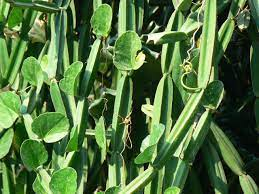NEEM (Azadirachta indica)
Neem, also known as Azadirachta indica, is a tree native to India and widely grown in tropical and subtropical regions. It has been used for centuries in traditional medicine for its various health benefits. Neem contains many bioactive compounds that have been studied for their medicinal properties, and today it is used in a wide range of products, from skincare to pest control.
Skincare:
One of the most well-known uses of neem is in
skincare. It is used in the treatment of various skin conditions such as acne,
eczema, and psoriasis. Neem has antibacterial, antifungal, and
anti-inflammatory properties that help reduce inflammation, soothe irritation,
and prevent infections. It also contains antioxidants that protect the skin
from environmental damage and help slow down the signs of aging.
Neem is commonly used in skincare products such as
soaps, lotions, and face masks. It can also be used as a natural remedy for
dandruff and hair loss. Neem oil is an effective moisturizer and conditioner
for hair, and it can also be used to soothe a dry and itchy scalp.
Oral health:
Neem has been used for centuries in Ayurvedic medicine
as a natural remedy for oral health problems. It is effective in treating gum
disease, tooth decay, and bad breath. Neem has antimicrobial properties that
help kill the bacteria that cause these problems, and it also contains
anti-inflammatory compounds that help reduce swelling and irritation.
Neem can be used in the form of toothpaste, mouthwash,
or oil pulling. Oil pulling is a traditional Ayurvedic technique that involves
swishing oil in the mouth to improve oral health. Neem oil can be used for oil
pulling as it helps kill the bacteria in the mouth and promote healthy gums and
teeth.
Pest control:
Neem has insecticidal properties that make it an
effective natural pesticide. It is non-toxic to humans and animals and is
commonly used in organic farming. Neem oil is a natural insect repellent that
is effective against a wide range of pests such as mosquitoes, ticks, and
fleas. It can also be used to control plant pests such as aphids, mealybugs,
and spider mites.
Neem is also used in the treatment of lice
infestations. Neem oil is a safe and effective alternative to chemical
treatments that can be harmful to children and adults. It suffocates the lice
and their eggs, preventing them from reproducing and spreading.
Digestive health:
Neem has been used in traditional medicine to treat
digestive problems such as constipation, diarrhea, and bloating. It has
laxative properties that help stimulate bowel movements and relieve constipation.
Neem also has antimicrobial properties that help kill the bacteria that cause
diarrhea and other digestive problems.
Neem can be consumed in the form of capsules or tea.
Neem tea is made by boiling neem leaves in water and is commonly used in Ayurvedic
medicine as a natural remedy for digestive problems.
Immune system support:
Neem is believed to have immune-boosting properties
that help support the body's natural defenses. It is rich in antioxidants that
help protect the body from free radical damage and oxidative stress. Neem also
contains compounds that have anti-inflammatory properties, which can help
reduce inflammation in the body and support overall health.
Neem can be consumed in the form of capsules or tea.
It can also be used topically in the form of creams or ointments to help soothe
skin inflammation and promote healing.
Neem is a highly beneficial plant with a wide range of
medicinal properties. Its antibacterial, antifungal, and anti-inflammatory
properties make it effective in treating various health problems. It is
commonly used in skincare, oral health, pest control, digestive health, and
immune system support. Neem is a natural and safe alternative to many chemical
treatments, making it a popular choice for those who prefer natural remedies.
If you are interested in using neem for its health benefits, be sure to consult
with a healthcare professional or an expert in Ayurvedic medicine to determine
the best way to use it.




Comments
Post a Comment